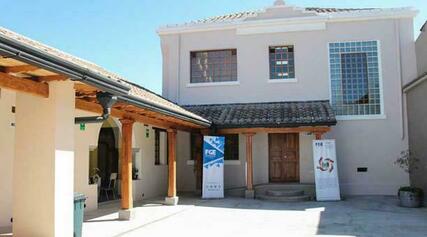Quito: Rights Protection Guarantees
Human trafficking is a crime with various purposes, one of the most common being sexual exploitation, in order to build a policy of prevention, care and restitution of rights to the victims of this crime, it is necessary to have the participation of institutions of the State at different levels of government (national, provincial and district), which provide services in the different horizons of intervention that are required.
In 2007, the Municipality of the Metropolitan District of Quito (MDMQ) promulgated Municipal Ordinance No. 0246 "Comprehensive Protection of Children, Adolescents against Sexual Exploitation in the Quitos’ territory".
As part of the execution of Ordinance 0246, the institutional shelter service is created, specialized in victims of human trafficking for sexual exploitation purposes called "Casa Arupo", an entity that operates under an agreement signed between the MDMQ through the SIS, and the FGE through SNPAVT, in 2018 and which was modified through an addendum in July 2022.
Main goal:
Provide comprehensive care to adolescent women victims of the crime of trafficking in persons for the purpose of sexual exploitation, to achieve their family, social and community reintegration within a framework of guarantee and full observance of Human Rights.
Secondary Objectives:
Strengthen family ties, in order to support their development during their stay in the Shelter.
Develop an autonomy plan for adolescents from 15 years of age, which enables social and economic inclusion.
Provide prevention tools for self-care.
Ensure that the service becomes a community of learning and personal growth.
Methodology:
Comprehensive approach to service users, based on psychological and social assessments, in the psychological field two axes are addressed, emotional state and risks, in the social field emerging medical and personal needs are evaluated.
In the legal field, protection measures such as institutional foster care and inclusion in the SPAVT must be obtained.
Once the therapeutic process has begun and when it is emotionally safe for the user, family bonding begins with the referents who were previously psychosocially evaluated.
A fundamental part of the foster care is linked to the development of soft skills and trades for a safe survival outside of the service, this is based on an academic relationship that covers the particular needs of each user, as well as her future projections.
In the family and community sphere, strengthening processes are carried out that guarantee the development of awareness and care skills, as well as the three levels of prevention, understood as:
Primary prevention: Avoid recruiting (recruitment) in nearby communities that had not been previously affected.
Secondary prevention: Prevent the victim reinserted in the family and community from being recruited again.
Tertiary prevention: Prevent the existence of new recruitments.
Once the adolescent is reinserted, a one-year follow-up is carried out to safeguard the psychosocial process established during foster care.




Share
Or copy link